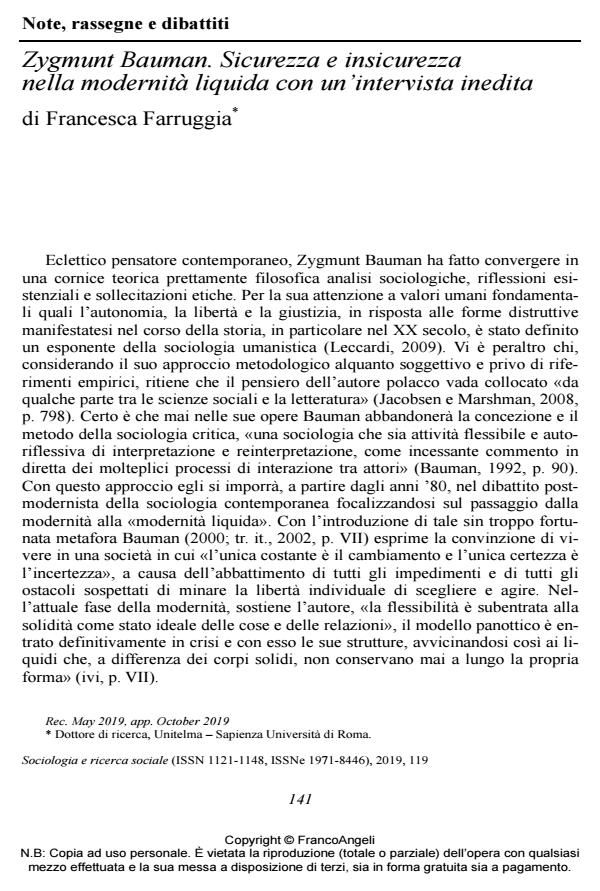Zygmunt Bauman. Safety and unsafety in liquid modernity with an unpublished interview
Journal title SOCIOLOGIA E RICERCA SOCIALE
Author/s Francesca Farruggia
Publishing Year 2019 Issue 2019/119
Language Italian Pages 16 P. 141-156 File size 191 KB
DOI 10.3280/SR2019-119007
DOI is like a bar code for intellectual property: to have more infomation
click here
Below, you can see the article first page
If you want to buy this article in PDF format, you can do it, following the instructions to buy download credits

FrancoAngeli is member of Publishers International Linking Association, Inc (PILA), a not-for-profit association which run the CrossRef service enabling links to and from online scholarly content.
Zygmunt Bauman (1925-2017) has been one of the 20th Century's most influential thinkers, whose analysis have fed the sociological debate on postmodernity society. The purpose of this notes is to analyze Bauman’s thought about urban safety in the liquid modernity. In an unpublished interview to the author (in appendix) Bauman introduces unprecedented considerations at both the meso and micro level: about crime prevention policies in Great Britain and relational aspects such as interaction between police and community, ethnic groups and natives.
Francesca Farruggia, Zygmunt Bauman. Sicurezza e insicurezza nella modernità liquida con un’intervista inedita in "SOCIOLOGIA E RICERCA SOCIALE " 119/2019, pp 141-156, DOI: 10.3280/SR2019-119007